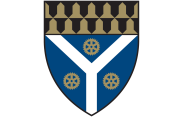BME Postdoc Presents at Future Leaders in Mechanobiology Series

Linda Irons, postdoctoral associate in the Department of Biomedical Engineering, recently presented an invited seminar as part of the University of Pennsylvania’s “Future Leaders in Mechanobiology,” a seminar series that aims to put a spotlight on early-stage, up-and-coming leaders in the field.
 Her presentation, “Multiscale computational modeling of vascular adaptation and homeostasis,” detailed a new and innovating multiscale computational framework recently developed to understand how cells within the aortic wall regulate the properties and function of the aorta when it is subject to perturbations in blood pressure (e.g. hypertension) or blood flow.
Her presentation, “Multiscale computational modeling of vascular adaptation and homeostasis,” detailed a new and innovating multiscale computational framework recently developed to understand how cells within the aortic wall regulate the properties and function of the aorta when it is subject to perturbations in blood pressure (e.g. hypertension) or blood flow.
To do this, Irons states that consideration must be given to how cell-level signaling events lead to changes in tissue-level mechanics and vice versa. One goal is to simulate vascular homeostasis and adaptation, which are processes by which healthy vessels can recover a preferred mechanical state when subject to these perturbations. Using a computational approach, you can begin to explore the robustness of the healthy aorta as well as the ways in which robustness is lost, which could indicate potential drivers of disease.
Irons, who works in the lab of Prof. Jay Humphrey, also presented an invited talk at the Cardiovascular Meeting at the University of California, Davis.

